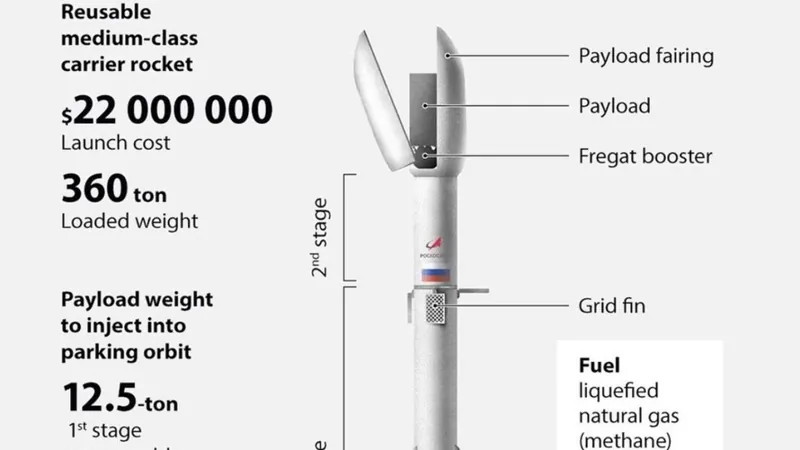
Russia Enters the Race for Reusable Rockets with Ambitious ‘Grasshopper’ Project
2024-11-11
Author: Arjun
In a surprising shift, Russia is stepping into the future of space exploration by launching plans for a reusable rocket project, echoing concepts that have already set competitors like SpaceX ahead. For years, Russian space officials were skeptical about the viability of reusable launch systems. Back in 2016, a representative from Roscosmos, Russia’s leading space authority, deemed the economic advantages of such technology as "not obvious," a sentiment echoed by various global space agencies who opted for expendable rockets throughout the decade.
However, the tide began to turn in 2017 when SpaceX made history by successfully returning its Falcon 9 rocket to Earth after launch. This pivotal moment prompted a change in Russian space discourse, with Igor Komarov, then CEO of Roscosmos, expressing congrats and hinting at a new focus on developing reusable technology, such as multi-use rocket engines.
Fast forward to the present, and Russia is now in the early stages of creating a prototype for the “Amur” rocket, which plans to feature a reusable first stage that lands vertically—a concept reminiscent of SpaceX's Falcon 9. According to state-sponsored news outlet TASS, preparations for the experimental vehicle, cheekily dubbed 'Grasshopper’ after its American counterpart, are set to commence next year. Igor Pshenichnikov, deputy director at Roscosmos, outlined that the objective is to tackle critical challenges in reusability.
This proposed vehicle sparks a discussion on how far Russia has lagged behind in the reusable rocket race. Notably, SpaceX's Grasshopper project launched in 2012, utilizing recycled components and testing systems that would eventually contribute to successful booster recovery. By contrast, Russia's efforts to kickstart the Amur's maiden launch, now delayed to at least 2030, highlight a pressing need for innovation.
Interestingly, Russian officials may be looking to distance their new ‘Grasshopper’ moniker from SpaceX, as TASS refrained from mentioning the latter’s similar project. Speculation around the origins of this name lingers, though it remains clear that competition in the reusable rocket sphere is intensifying.
Globally, Russia isn't alone in racing to catch up. The European Space Agency's Themis project is also in the works, but it remains years behind. Meanwhile, China’s private space companies are reportedly making headway with their own vertical landing vehicles, potentially positioning them to achieve orbital booster landings ahead of Russia.
Also noteworthy is Blue Origin, an American firm that has demonstrated the ability to successfully recover its New Shepard suborbital rocket. With plans for an orbital launch of the New Glenn rocket imminent, the space race is heating up, and all eyes will be on who can successfully land the first stage of their rockets in the coming years.
As the world watches, the stakes continue to rise in the rapidly evolving arena of space launch technology, and Russia's renewed interest could either rejuvenate its status in the global space community or illustrate the struggles of a once-dominant leader trying to reclaim its former glory. The next few years will be crucial as nations around the world vie for dominance in reusable rocketry. Stay tuned!



 Brasil (PT)
Brasil (PT)
 Canada (EN)
Canada (EN)
 Chile (ES)
Chile (ES)
 Česko (CS)
Česko (CS)
 대한민국 (KO)
대한민국 (KO)
 España (ES)
España (ES)
 France (FR)
France (FR)
 Hong Kong (EN)
Hong Kong (EN)
 Italia (IT)
Italia (IT)
 日本 (JA)
日本 (JA)
 Magyarország (HU)
Magyarország (HU)
 Norge (NO)
Norge (NO)
 Polska (PL)
Polska (PL)
 Schweiz (DE)
Schweiz (DE)
 Singapore (EN)
Singapore (EN)
 Sverige (SV)
Sverige (SV)
 Suomi (FI)
Suomi (FI)
 Türkiye (TR)
Türkiye (TR)
 الإمارات العربية المتحدة (AR)
الإمارات العربية المتحدة (AR)